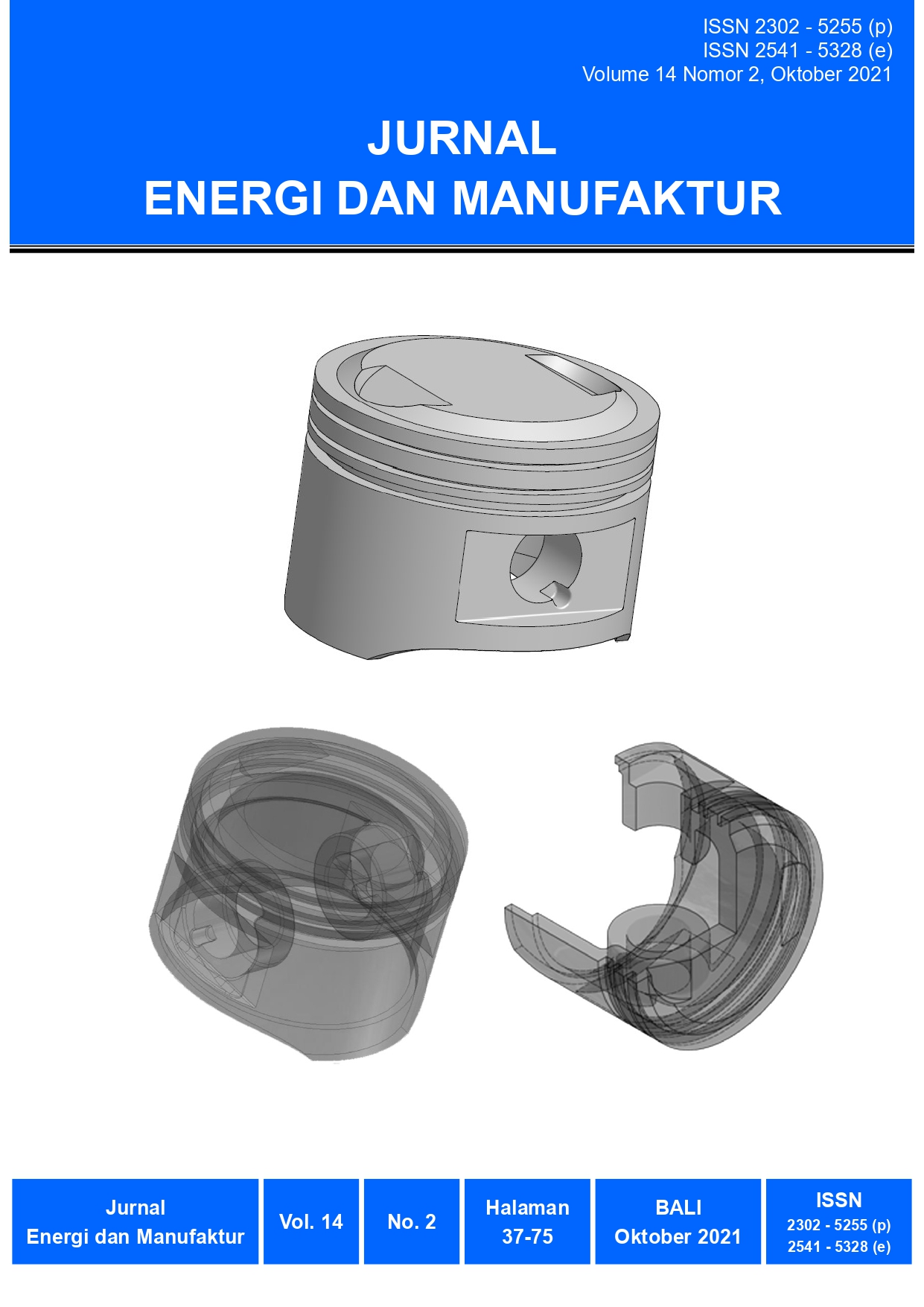Analisa karakteristik aliran pada fenomena sirkulasi alam fasa-tunggal di Untai FASSIP-01 Mod.2
Abstract
FASSIP-01 rectangular loop is a facility which owned by PTKRN-BATAN that used for observe the phenomenon of natural circulation in large-scale. This natural circulation phenomenon will be applied as a passive cooling system in nuclear power plant that will be built up in Indonesia. Some FASSIP-01 experiments have done before, but those experiments show that the fluid flow in FASSIP-01 is not in optimal conditions because there are some errors happened and causes some losses. The second modification of FASSIP-01 rectangular loop has purpose to minimize losses happened in previous modification of FASSIP-01. The purpose of this research is to know the characteristics of flow and the trend of the data from the flow in FASSIP-01 mod.2 rectangular loop before do experiments. Simulations is done by using 2-dimensional images and varying the heating temperature at 353,15 K and 363,15 K and the cooler at temperatures of 278.15 K, 283.15 K, 288.15 K and 293.15 K. Based on the simulation results it is known that the velocity flow rate will increase if the temperature in the heating tank is increased, but will decrease if the temperature in the cooling tank is increased. The results of the calculation of the Reynold Number and Nusselt Number based on the velocity flow rate are 2973,668 the lowest and 5775,356 the highest and for the Nusselt number obtained 17,36 and the highest is 28,091.
Downloads
References
[2] BAPETEN, Kecelakaan Reaktor Nuklir Fukushima Dai'ichi di Jepang, Radiasinya tidak Sampai ke Indonesia, 2011. [https://bapeten.go.id/berita/kecelakaan-reaktor-nuklir-fukushima-daiichi-di-jepang-radiasinya-tidak-sampai-ke-indonesia-134718] (diakses 7 Mei 2021).
[3] M. Juarsa, Giarno, A. N. Rohman, G.B. Heru K., J.P. Witoko, D.T. Sony Tjahyani, Flow rate and temperature characteristics in steady state condition on FASSIP-01 loop during commissioning, Proceeding ICoNETS 2017, 962, 2018.
[4] A. Rinaldi, L. Gabriella N, Giarno, J. Prasetio, M Juarsa, Estimasi Laju Aliran Sirkulasi Alam Berdasarkan Beda Temperatur Pada Untai Fassip-01, Buletin Ilmiah Sigma Epsilon, Vol.23 No.2, 2019.
[5] M. Noufal, I.G.B Wijaya Kusuma, I N. Suarnadwipa, Analisa Perpindahan Panas Pada Heater Tank FASSIP - 01, Jurnal METTEK Volume 3 No.1, 1-10, 2017
[6] Engineering ToolBox, Water - Density, Specific Weight and Thermal Expansion Coefficient, 2003. [https://www.engineeringtoolbox.com/water-density-specific-weight-d_595.html] (diakses 8 Mei 2021).
[7] Engineering ToolBox, Water - Dynamic and Kinematic Viscosity, 2004. [https://www.engineeringtoolbox.com/water-dynamic-kinematic-viscosity-d_596.html] (diakses 8 Mei 2021).
[8] R. Shankar Subramanian, Heat Transfer in Flow Through Conduits, Unknown. [https://lin-web.clarkson.edu/projects/subramanian/ch330/notes/Heat%20Transfer%20in%20Flow%20Through%20Conduits.pdf] (diakses 8 Mei 2021).
[9] Engineering ToolBox, Water - Thermal Conductivity, 2018. [https://www.engineeringtoolbox.com/water-liquid-gas-thermal-conductivity-temperature-pressure-d_2012.html] (diakses 19 Mei 2021).
[10] D. Taler and J. Taler, Simple Heat Transfer Correlations For Turbulent Tube Flow, WTiUE 2016, E3S web of conferences 13 (2017).
[11] Online Library, APPENDIX B: Thermophysical Properties of Water, Unknown. [https://onlinelibrary.wiley.com/doi/pdf/10.1002/9781118534892.app2] (diakses 8 Mei 2021).
[12] A.R.P Adi dan I M. Arsana, Analisa Pengaruh Laju Aliran Massa Fluida Dan Temperatur Fluida Masuk Terhadap Kapasitas Radiator Pada Sistem Pendingin Daihatsu Xenia 1300Cc, Jurnal Pendidikan Teknik Mesin Volume 6 Nomor 3, 1-9, 2018.
[13] P. Nugroho, Bilangan Reynolds Untuk Aliran Evaporasi Dua Fasa Pada Kanal Mini Horizontal Dengan Refrigeran R-290 Dan R-600A, Skripsi, Program Studi Teknik Mesin, Fakultas Teknik, Universitas Indonesia, 2012.

This work is licensed under a Creative Commons Attribution-NonCommercial-ShareAlike 4.0 International License.









